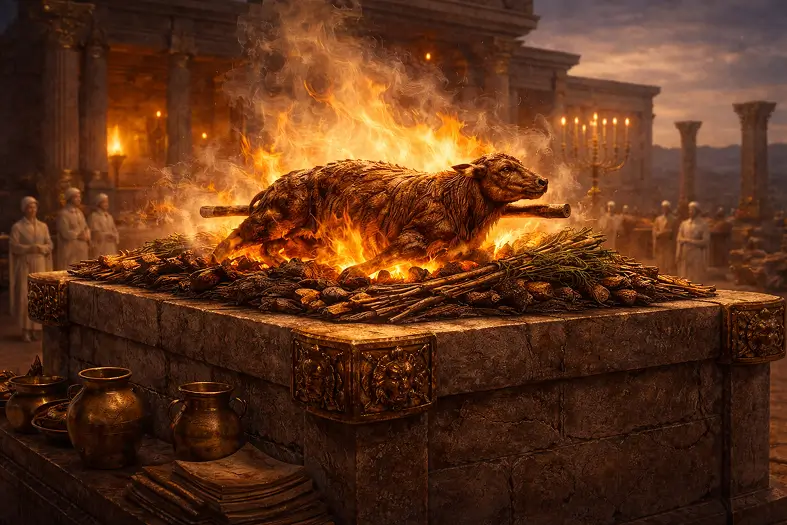


An apostate or foreigner may not partake of the Korban Pesach.
This mitzvah prohibits anyone who has rejected the covenant with Hashem from eating the Korban Pesach. Rambam (Hilchot Korban Pesach 9:6) defines a ben nechar (“outsider”) as one who has turned away from Hashem, whether by idolatry or rebellion against Torah.
Sefer HaChinuch (Mitzvah 13) explains that since the Korban Pesach symbolizes covenantal loyalty and redemption, only those who embrace the covenant may participate. The Talmud (Pesachim 96a) teaches that eating the Pesach requires identification with Israel’s faith and destiny. Rashi (Ex. 12:43) clarifies that this law excludes those who cut themselves off from the community of Israel. Ramban expands that Pesach was the foundation of Israel’s covenant — participation without loyalty would desecrate its sanctity.
Commentary & Classical Explanation:
Contrast with Inclusion of Converts (Mitzvah 14):
Parallel to Circumcision Requirement (Mitzvah 414):


Represents Emunah—the deep, inner trust in Hashem’s presence, oneness, and constant involvement in our lives. This badge symbolizes a heartfelt connection to G-d, rooted in belief even when we cannot see. It is the emotional and spiritual core of many mitzvot.
Represents the concept of spiritual intentionality, purity, and sanctity—set apart for a higher purpose.
Mitzvot that strengthen communal life — showing up, participating, supporting, and belonging. Community is where holiness is shared, prayers are multiplied, and responsibility becomes collective.
Signifies awe and reverence toward Hashem—living with awareness of His greatness and presence.
Mitzvot that define and deepen the relationship between a person and their Creator. These include commandments involving belief, prayer, Shabbat, festivals, sacrifices, and personal holiness — expressions of devotion rooted in divine connection.

Dive into mitzvos, prayer, and Torah study—each section curated to help you learn, reflect, and live with intention. New insights are added regularly, creating an evolving space for spiritual growth.

Explore the 613 mitzvos and uncover the meaning behind each one. Discover practical ways to integrate them into your daily life with insights, sources, and guided reflection.

Learn the structure, depth, and spiritual intent behind Jewish prayer. Dive into morning blessings, Shema, Amidah, and more—with tools to enrich your daily connection.

Each week’s parsha offers timeless wisdom and modern relevance. Explore summaries, key themes, and mitzvah connections to deepen your understanding of the Torah cycle.